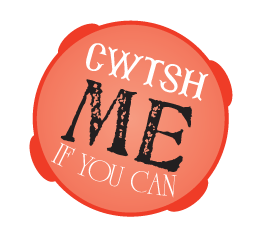Welsh Keywords: Cwtsh 01.05.16
This is the eighteenth contribution to our Welsh Keywords series – inspired by Raymond Williams’ Keywords – which offers contemporary perspectives on contested meanings of words in Welsh and how these shifting meanings continue to shape our society.
More excerpts from Planet 222I’ve just visited Cardiff’s Old Library to take a look at what the Menter Caerdydd website claims to be the capital city’s ‘first Welsh Cultural Centre’. This facility incorporates the existing Cardiff Story museum; otherwise it is dedicated primarily to the promotion of the Welsh language. It offers classes for Welsh learners, a crѐche, a café-bar, and other facilities. At its entrance is the Bodlon gift shop, and it is this space, inevitably, that sets the tone for the whole enterprise. It is attractively laid out. Tasteful. Like all shops, however, its mission is to sell things. As the website reminds us, the enterprise ‘must be self-sufficient’.

Not surprisingly, rendering Welsh into a saleable commodity involves words. What is striking, however, is the degree to which words – either alone or embedded in catchphrases and memes − have become the chief articles of trade. Here in the Old Library, and in a hundred other outlets throughout Wales, they lie in wait to seduce and exhort us. Favourites include slate and wood renditions of cariad (love), subtly distressed to give the desired antique effect. Then there are the fretwork hearts dedicated to ‘Mam’, the croeso doormats, the cartref shelf-sitters, the ‘Cymru’ T-shirts, and the innumerable domestic pieces: a teapot, for example, whose inscription reminds us, with elegant pedantry, that it is meant for te. Wordiest of all is the hessian teulu (family) cushion, which carries a dictionary definition of the word (in typewriter font), just in case we’ve forgotten that, too.
Buy the issue or subscribe hereAbout the author
Tony Bianchi comes from Tyneside and lives in Cardiff. He has published three novels in the past year: Dwy Farwolaeth Endaf Rowlands (Gomer), which won the Prose Medal at the National Eisteddfod, Harry Selwyn’s Last Race (Parthian) and Sol a Lara (Gomer).
If you liked this you may also like:
Welsh Keywords: Cyfieithu
Greg Hill discusses how the word ‘cyfieithu’ diverges from its English equivalent ‘translate’, and what this says about the potential for Wales as a bilingual society to become less polarised.
Welsh Keywords: Cywilydd
Mair Rees reflects on how for her the word ‘cywilydd’ is more painful than its closest English equivalent – ‘shame’. She argues that in 21st century Wales, ‘cywilydd’ still marks women’s self-image and continues to crush confidence in the nation’s political status.